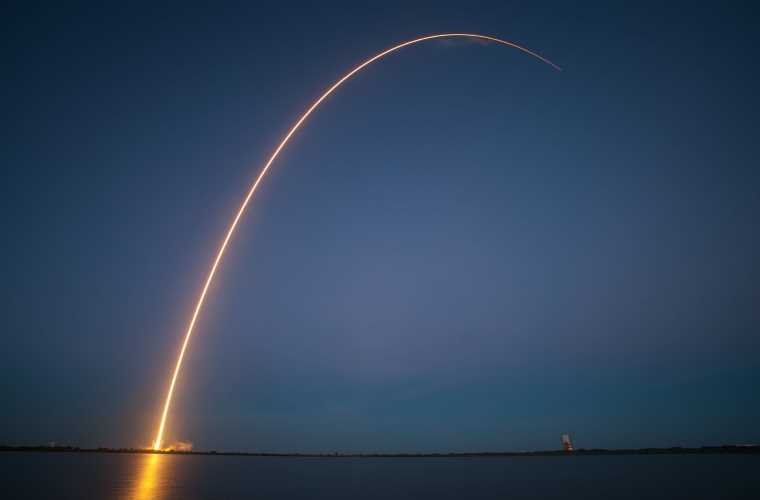The United States Space Force (USSF) hopes to employ a fleet of rockets to make one-hour cargo delivery anywhere within the world a reality. Whether sending critical supplies to the location of a humanitarian disaster or supporting military activities in a remote battle space, Space Force authorities consider one-hour worldwide delivery using rockets a critical capability moving forward.
ONE HOUR DELIVERY NOT JUST FOR AMAZON ANYMORE
Move over, Amazon. The United States Space Force is looking to enter the cargo delivery arena. Of course, all joking aside, the delivery of cargo to every remote location anywhere in the world within an hour is something even the tech giant cannot promise.
Enter the U.S. Space Command, whose leaders deem one-hour global delivery a critical capability for both U.S. and international security. As such, they are funding this initiative to make rocket-propelled, one-hour global delivery a reality, with the first grants only recently handed out to research partners.
TEAM’S EXPERTISE A PERFECT FIT TO TACKLE ONE HOUR GLOBAL DELIVERY
Part of the U.S. Air Force’s Rocket Cargo program (the USSF is part of the Air Force), the USSF recently awarded a $350,000.00 grant to researchers at The University of Central Florida. According to a press release announcing the grant, the project will help identify the technical and technological challenges of the USSF’s latest lofty goal.
“Although it (the grant) puts pressure on us to succeed, it also gives us a chance to thrive and set a precedent for UCF with the USSF,” said Michael Kinzel, an assistant professor in UCF’s Department of Mechanical and Aerospace Engineering. “I think it will open many new doors and partnerships, which is especially important due to our proximity to the Patrick Space Force Base and the entire Space Coast.”
According to the same press release, “The USSF University Consortium Research Opportunity is the third of three pilot programs designed to facilitate research opportunities between the Air Force Research and universities that can lead to the technological advancement of the USSF.”
In this particular case, the USSf selected the UCF team due to the varied skill sets of its team members, skills they will apply to the one-hour global cargo delivery goal.
For example, Kinzel is an expert in computational fluid dynamics. His work will entail numerical analysis and aerodynamic modeling to help ensure safe and prompt cargo delivery.
Tarek Elgohary, a fellow researcher and assistant professor in aerospace engineering, will employ complex modeling techniques and control theory to help the cargo delivery rocket arrive at its precise destination.
Third team member Luis Rabelo, a professor of industrial engineering and management systems, will coordinate the overall effort by identifying potential bottlenecks in the system so the delivery rockets can be packed and launched within the shortest time possible.
100 STUDENT WORKFORCE UP TO THE TASK
The research team did not provide a definitive timeline for completion but did note they would not be doing their work alone. Instead, thanks to the recently awarded grant, a significant number of students will work alongside them, gaining invaluable experience while also offering their own specialized skill sets to the overall effort.
“The graduate students will help guide two cohorts of Senior Design students who will aim to make the concepts function,” says Kinzel. “It’s really nice because we will engage around 100 students overall, creating a workforce relevant to USSF missions.”
Kinsel also said that the students would have the opportunity to intern with the Air Force Research Laboratory and the Science Applications International Corporation. According to the release, both entities “support the educational and workforce development aspects of the project.”
Follow and connect with author Christopher Plain on Twitter: @plain_fiction

